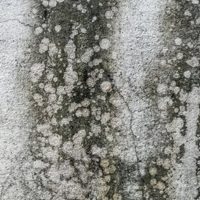Am I Qualified for Workers’ Compensation if I Was Exposed to Mold?

Molds can be found almost anywhere where there is moisture or oxygen. In the outdoors, molds help break down organic matter, such as dead trees, fallen leaves, and other debris. On the other hand, indoor mold growth should be avoided. Mold can cause a variety of health problems. Unfortunately, it is not uncommon to find mold indoors. While we often consider mold a residential issue, it is also a risk at most worksites. If you have become sick and believe it is because you were exposed to mold in your workplace, you may be wondering if you are eligible for workers’ compensation benefits. In this article, we discuss what you need to know.
Understanding Mold Exposure
Mold is part of the fungi family. It grows outdoors and indoors. Mold thrives in moist environments and can be found anywhere that meets these conditions. In the outdoors, molds are a crucial part of the ecosystem. However, when it grows inside, mold can be problematic. While the presence of mold does not automatically present any problem, prolonged mold exposure can cause health problems. Molds spread by releasing spores. A person is exposed to mold when they inhale mold spores.
It is crucial to understand the signs of mold exposure. The following are some of the common symptoms that may indicate mold exposure;
- Allergic reactions, such as coughing, sneezing, itchy or watery eyes, or stuffy or runny nose
- Nosebleeds
- Unexplained body pains or headaches
- Chest tightness
- Possible skin lesions
- Rash and intense itching
Mold is especially dangerous for people with asthma or mold allergies. These people are more likely to have severe reactions. Also, those with certain underlying medical conditions or a suppressed immune system are at an increased risk of suffering severe reactions from mold exposure.
Workers’ Compensation Laws and Mold Exposure
Workers’ compensation is a type of insurance that most employers are required to carry. It typically covers injuries and illnesses that occur as a result of employment. Workers’ compensation provides employees with medical, income, and vocational rehabilitation benefits while protecting employers from lawsuits related to workplace injuries and illnesses. The workers’ compensation system is meant to ensure injured or ill employees receive timely support, regardless of fault.
If you have been exposed to mold at work, you may be qualified for workers’ compensation. To qualify for workers’ compensation, you must show that your mold exposure happened as part of your work duties. This entails proving that your mold exposure was directly related to your work and did not occur due to non-work-related activities. Second, you must prove that mold exposure caused your health issues. This often involves getting a diagnosis from a doctor who can confirm that your symptoms are consistent with mold-related illnesses. Additionally, to qualify for workers’ compensation, you must have reported your illness to your employer on time. In Vermont, the law requires you to report your work-related injury or illness to your employer immediately or as soon as possible.
Contact a Vermont Workers’ Compensation Attorney
If you have suffered mold exposure in the workplace, it is advisable to contact an attorney who can review your situation and determine whether you are qualified for workers’ compensation. Contact a qualified Vermont workers’ compensation attorney at Sluka Law PLC to schedule a consultation and discuss your case.
Source:
labor.vermont.gov/workers%E2%80%99-compensation/injured-workers/claims-filing#:~:text=When%20you%E2%80%99re%20injured,of%20the%20injury.
